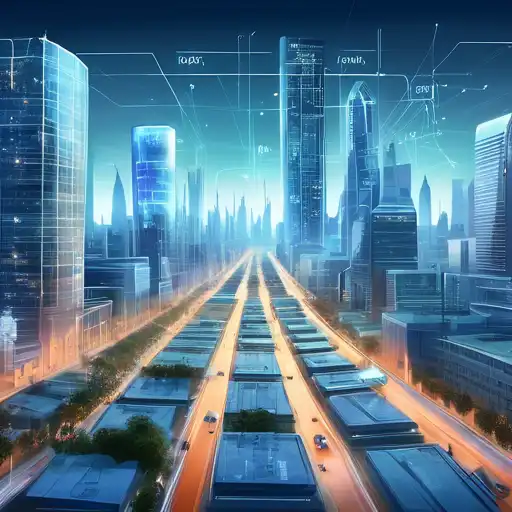Introduction to IoT and Smart Cities
The Internet of Things (IoT) is revolutionizing the way cities operate, making them smarter, more efficient, and more responsive to the needs of their inhabitants. By connecting devices, sensors, and infrastructure to the internet, cities can collect and analyze data to improve services, reduce costs, and enhance the quality of life for residents.
Key Areas Where IoT is Making an Impact
IoT technology is being applied in various sectors to transform urban environments into smart cities. Here are some of the key areas:
- Traffic Management: IoT devices help in monitoring traffic flow and optimizing signal timings to reduce congestion.
- Waste Management: Smart bins and waste collection systems ensure efficient garbage disposal and recycling.
- Energy Efficiency: Smart grids and meters allow for better energy distribution and consumption monitoring.
- Public Safety: Surveillance cameras and sensors enhance security and emergency response times.
Benefits of IoT in Urban Development
The integration of IoT in city infrastructure brings numerous benefits, including:
- Improved efficiency in public services
- Reduced environmental impact through better resource management
- Enhanced citizen engagement and satisfaction
- Increased economic opportunities through innovation and technology
Challenges and Considerations
Despite its potential, the adoption of IoT in smart cities faces several challenges, such as data privacy concerns, high implementation costs, and the need for robust cybersecurity measures. Addressing these issues is crucial for the successful deployment of IoT technologies.
Future Prospects
The future of smart cities looks promising, with IoT at the core of urban innovation. As technology advances, we can expect even more sophisticated solutions to emerge, further enhancing the livability and sustainability of urban areas.
For more insights into how technology is shaping our world, explore our articles on technology trends and sustainable development.
Conclusion
IoT is undeniably transforming cities into smarter, more efficient, and more livable spaces. By leveraging the power of connected devices and data analytics, urban areas can address pressing challenges and pave the way for a sustainable future. The journey towards smart cities is just beginning, and IoT will continue to play a pivotal role in this transformation.
